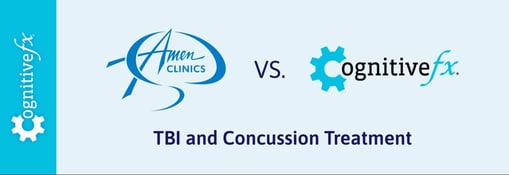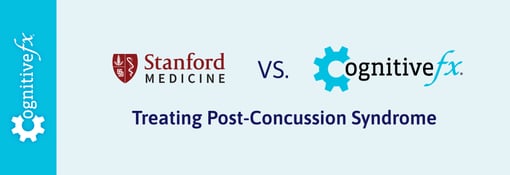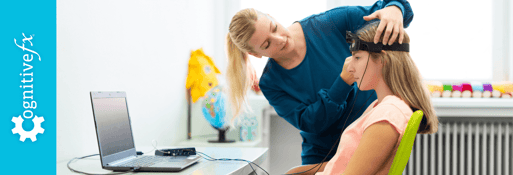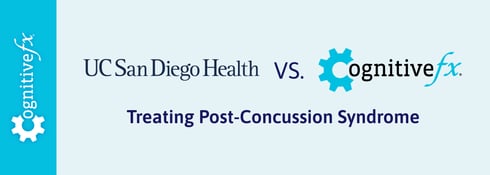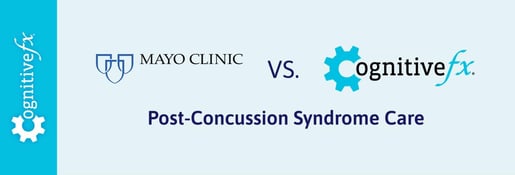If you're searching for a concussion clinic, you've probably already discovered something frustrating: most doctors will tell you to rest, wait, and hope your symptoms go away on their own.
For about 70% of people, that approach works. Symptoms resolve within three months and life goes back to normal. But you're likely not reading this article because you're in that 70%.
You're reading this because it's been months (or years) since your injury. You've seen doctors who said your MRI looks fine. You've been told the symptoms are psychological, that you just need more time, or worse, that nothing else can be done. And yet the headaches, brain fog, fatigue, and difficulty concentrating haven't gone away.
Here's what those doctors probably didn't tell you: standard MRIs can't detect the kind of damage concussions cause. And the "rest and wait" approach, while fine for acute recovery, does nothing for the 30% of patients whose symptoms persist beyond three months.
The truth is, most concussion clinics in the U.S. aren't equipped to help patients with persistent symptoms. They lack the diagnostic tools to see what's actually happening in your brain, and they don't offer the intensive, multidisciplinary treatment that research shows is most effective.
This guide will help you separate the clinics that can genuinely help from those that will waste your time and money. We'll cover:
Before we dive in, here's a quick reference you can use to evaluate any clinic you're considering:
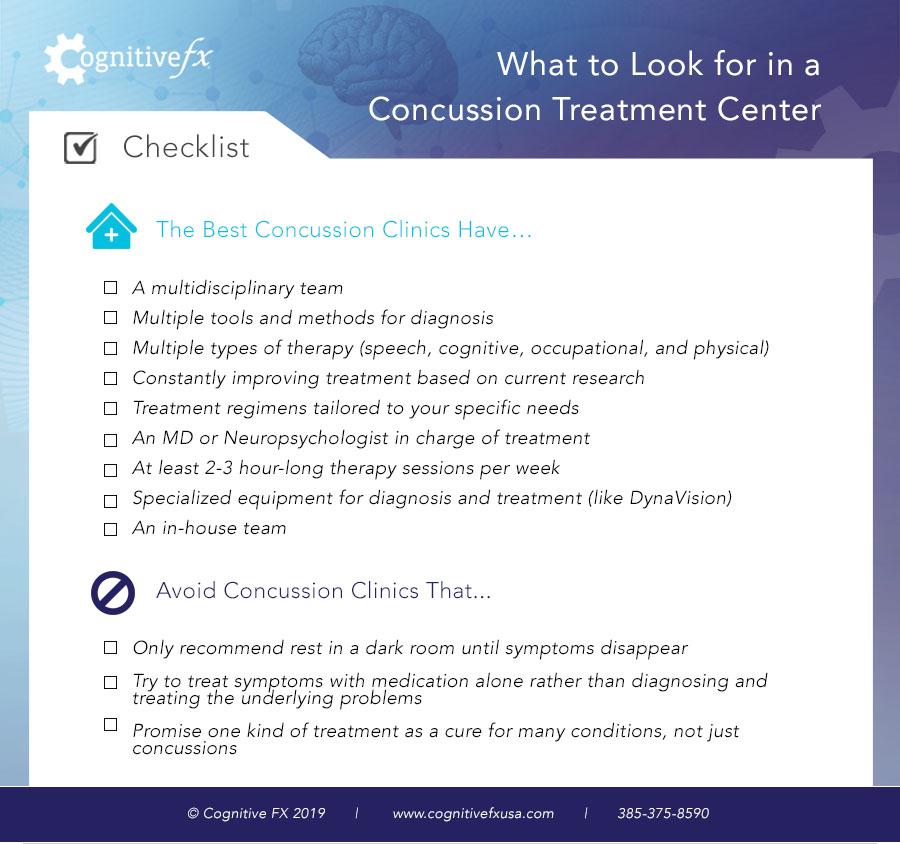
If you've experienced one or more concussions and your symptoms persist, you're not alone —and you're not imagining it. Help is available. Peer-reviewed research shows that 77% of patients treated at Cognitive FX experienced significant improvement in their post-concussion symptoms. Cognitive FX is the only post-concussion treatment clinic with third-party validated outcomes. To see if you are eligible for treatment, schedule a consultation.
How to Tell If You Need a Concussion Clinic
Before we cover how to evaluate a concussion clinic, it makes sense to discuss whether or not a clinic would even meet your needs.
What Do You Need at the Clinic?
Most clinics offer some or all of the following four services: baseline testing, return to play services, acute concussion treatment, and post-concussion treatment.
Baseline Testing
Baseline testing is most frequently used by athletes who are in a sport known for concussion risk. In this case, the player takes a cognitive test designed to establish the ‘baseline’ — aka, what’s normal for them. If during the season they sustain a concussion, retaking the test will show how much they’ve been impacted and when they’ve returned to normal.
That said, not every baseline test is equally effective. IMPACT testing is perhaps the most well-known baseline test. Unfortunately, some players game the system by intentionally doing poorly on the initial test so that, if they do get a concussion, their scores will appear normal and they will be cleared for play.
Tests that include additional dimensions — such as eye movement tracking — cannot be sandbagged, and are thus more reliable. A few we know of are C3Logix, Canary Concussion, Sway, and Kinetisense.
Return to Play Services
Return to play service is for athletes (usually but not necessarily adolescents) who sustained a mild traumatic brain injury and are not allowed to rejoin their team or solo sport until they’ve been cleared by a doctor. In the best clinics, that doctor will put them through a battery of testing before giving them the OK to return to their chosen sport. It is not safe to resume sports until you have fully healed from a concussion — typically a two-week minimum.
Return to play services are usually used by middle school, high school, university, and professional athletes. Many states have laws that prevent them from returning to their sport until they are cleared by healthcare professionals.
You can learn more about return to play from the Center for Disease Control and Prevention (CDC) HEADS UP program.
Concussion Treatment
Some clinics will offer therapy and other treatments during the first few weeks of your concussion. This can be helpful if you want the best chance at healing. If you do seek treatment for acute concussions, it’s important to find a clinic that specializes in active rehabilitation — but more on that later.
Post-concussion Treatment
Some clinics also offer treatment plans for patients whose symptoms did not go away with rest or time. The criteria given below will help these patients the most.
How Long Has It Been Since Your Concussion?
The main determining factor in whether or not you should go to a concussion clinic is time. 70% of concussion patients recover within three months. That means that most people won’t see a marked difference between therapy and active rest at home during that time.
If it has been over three months since your mild TBI and your symptoms have not subsided, you need treatment at a concussion clinic. While you may find ways to cope with your symptoms over time, the damage from your concussion will not go away without targeted therapy. Only the best concussion treatment centers are capable of handling this situation.
In the next section, we’ll address how to know if a clinic is good or not.
How to Tell If a Concussion Clinic Is Good or Not
Sometimes, evaluating a clinic is as simple as glancing through its website. Other times, it might take an in-person visit (armed with the right questions) to determine if a clinic can help you.
This list of questions, along with what you’d observe in the best clinics, will help you evaluate any concussion clinic you’re interested in attending.
9 Questions to Ask Your Concussion Clinic
1. Do you have a multidisciplinary team?
The brain is the most complex organ in your body. Different regions control different processes that can be disrupted by a concussion — things like your autonomic nervous system, decision-making, short-term memory, emotions, and more.
One concussion specialist, no matter how knowledgeable and talented, would have a difficult time identifying and treating all areas impacted by a concussion. The best concussion clinics have a care team that can coordinate treatment for each patient and/or offer referrals for needed specialists they don’t have in-house..
Most clinics have some combination of a physical therapist, a neuropsychologist, and a sports medicine doctor. The best also bring occupational, cognitive, or speech therapists on board. For some patients, a small team of dedicated specialists is sufficient. But for patients with persistent post-concussion symptoms, that combination may not be enough.
At Cognitive FX, our team includes clinical neuropsychologists, neuroradiologists, a neurosurgeon, clinical psychologists, neuromuscular therapists, neurocognitive therapists, occupational therapists, MRI technicians, and more. If your concussion symptoms haven’t responded to other treatment, we can help.
To learn more about all the types of doctors who could help with a brain injury — from pediatric physicians to neurosurgery experts to physical medicine practitioners — see our post on which doctors treat head injury.
2. How do you diagnose patients?
If you hit your head and started having concussion symptoms afterward, you likely have a concussion. But if you go to a concussion clinic, they should do more for you than simply listen to your story when determining your diagnosis.
The best concussion clinics can use an array of diagnostic tools to ascertain whether you have a concussion and how you have been affected. They can also consider your symptoms in light of your medical records. Here are some examples of diagnostic tools used for concussion patients:
Diagnostic Imaging
One way to detect a concussion is by using a functional MRI (fMRI) or functional Neurocognitive Imaging (fNCI, a type of fMRI). Quantitative Electroencephalographs (qEEGs) are also sometimes used to diagnose a concussion, but they have a high rate of false positives. Regular MRIs cannot be used to diagnose a concussion because they only look at brain structure (not brain function), although they are useful if your doctor suspects serious structural damage.
Vision Testing
Roughly 20% of people who suffer symptoms from a concussion have problems with their eyesight. If your eyes aren’t tracking properly due to your concussion, that could cause symptoms like headaches, dizziness, and eye fatigue. You might also consider machines that measure visual-motor coordination, such as a Dynavision board, which features a map of lights that you tap when they illuminate.
Balance Testing
Do they have a way to examine your gait? What about equipment to test your balance? Vestibular function can also be affected by a concussion. It is difficult — and dangerous — to try to correct balance problems on your own.
Neurocognitive Testing
Do they administer any cognitive tests? Many concussion patients have slower reaction times, difficulty reading or retaining what they read, brain fog, short-term memory loss, and many other symptoms that might surface during neurocognitive testing.
3. What kinds of therapy do you offer?
As you may have noticed from the first two questions, concussion symptoms aren’t simple. Multiple important functions — like vision, balance, and memory — can be affected. Just as you need to be able to diagnose those issues, you need multiple strategies for repairing those functions.
If a clinic only offers one kind of treatment, then that treatment will only work for a certain subset of people. As a rule of thumb, the best clinics offer at least the following therapies:
There are, to our knowledge, less than 40 clinics across the U.S. that could offer all four. Those are your best bets. Any other clinics may or may not be able to help you. You’d have to know for sure that the kind of therapy they use to treat concussions matches the kind of therapy your symptoms require.
4. Do you recommend cocooning?
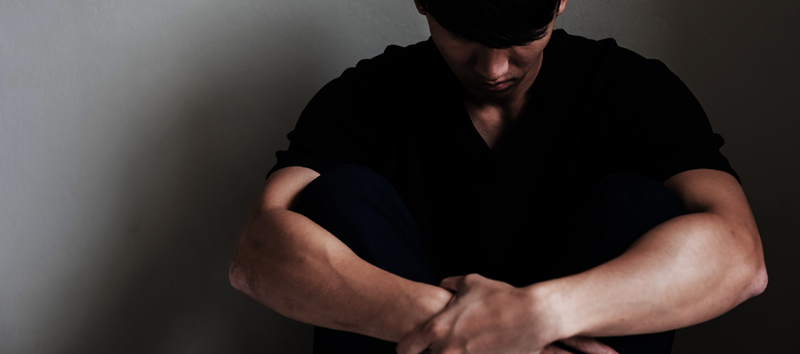
“Cocooning” is an outdated recommendation for concussion patients that goes like this: “Lie down in a dark room and don’t do anything until your symptoms get better."
In reality, concussion patients have the best chance at recovery through active rest by alternating between physical activity, cognitive exercise, and rest.
The best concussion clinics will be doing at least one of the following:
- Implementing best practices based on current research
- Conducting research themselves.
You can usually peruse the clinic’s website to determine if they are using or producing research. If not, it’s worth asking your point of contact to know how up to date their treatment regimens are. We keep a record of our published research on our website and our therapists regularly incorporate new findings and treatment improvements to therapy modalities.
5. Do you modify the treatment protocol for each patient?
Does the clinic offer personalized treatment options? Or do they stick to a specific regimen (usually because that’s what insurance will reimburse)?
A pre-programmed regimen can work. But because concussion patients vary significantly in how they’re affected, an ideal program can tweak the therapy regimen to meet the needs of each patient. For example, at Cognitive FX, we design our treatment to address individual concerns. We have an overall treatment method that can be adjusted to each patient's needs during the therapy.
6. Who is in charge of my therapy?
The best case scenario is if your treatment is overseen by an MD or by a neuropsychologist. In many clinics, treatment is managed by a physical therapist or a nurse practitioner. Some even hand off all treatment to athletic trainers. While they may do a good job, they’re generally sticking to predetermined regimens and won’t have the knowledge needed to change up the routine if it’s not working for you.
That said, even primary care doctors, sports medicine doctors, and neuropsychologists may not have enough background in concussion treatment and research to provide cutting-edge, appropriate treatment, even if they have the equipment to make a diagnosis. It’s very important to find someone who specializes in concussion treatment.
7. How often do you schedule therapy sessions?
For concussion treatment to be effective, the brain needs to be taxed enough to change. So, good therapy will stress the brain frequently enough to force it to change.
If your visits are scheduled once a week for six weeks, that’s not likely to push the brain into making a change. A good minimum therapy level would be 2-3 sessions per week. At Cognitive FX, we often compact treatment into one week of rigorous therapy, which results in an average improvement of 75% in our patients.
8. What kinds of equipment do you have for therapy?
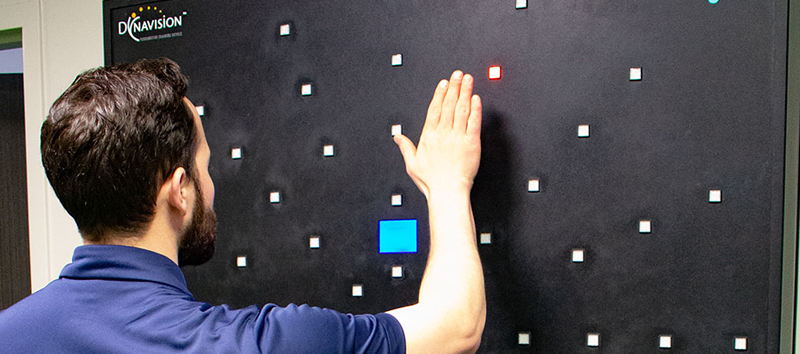
This question ties in with what kind of therapy is being done. It’s most important that the clinic can handle multiple types of therapy. But knowing what kind of tools they have to execute their treatment plans also tells you what kind of clinic they are.
A DynaVision board, plenty of cognitive games, and exercise equipment that can challenge balance and coordination are all good signs.
9. Are you being treated in-house or referred out?
Finally, consider whether you’re being treated all under one roof or if you have to travel to several different locations to complete your treatment regimen. The best clinics have in-house specialists who can coordinate as a team to make sure your treatment runs smoothly.
3 Warning Signs: When to Rule Out a Concussion Clinic
The good news with concussion clinics is that, usually, they won’t do any harm, even if they fail to help you. But there are a handful of indicators that mean you should turn around, walk out, and find someone else to help you. Here are three problematic situations:
1. They still recommend cocooning.
If a clinic tells you to treat your concussion with rest in a dark room and no activity, they’re not basing that recommendation on good neuroscience research. Try to find a doctor who will work with you to prescribe active rest and therapy if needed. Your brain health is too important to entrust to someone who can’t help you engage in “active rest” during your recovery.
2. They prescribe medication without fixing the root cause.
Some doctors (especially neurologists) will prescribe medication to get rid of symptoms like nausea and migraines without finding and fixing what’s causing your problems. While medication helps managing day-to-day living, it’s not a cure and it’s not even effective at managing symptoms for most concussion patients. Any doctor who wants to push medication without first determining whether those symptoms stem from a treatable condition is worth leaving for a second opinion.
Note: Many doctors simply don’t have the tools to determine the underlying cause of your symptoms. This is not to say they are bad doctors, and they may help you keep your symptoms under control. But medication is not a substitute for treatment. You deserve more.
3. They promise a treatment that will cure all your problems (not just concussions).
As you probably know, there are some people who are happy to take your money while making fantastic claims about what they can do for you. If a treatment center tells you that one treatment program can fix things like concussions, bipolar disorder, marriage woes, and even autism, then you should take your money elsewhere. (Yes, there are places that make these claims to capitalize on people who experience real suffering and desperation.)
TL;DR: There is no one-size-fits-all treatment for every ailment and disorder. Make sure you find a clinic that specializes in treating concussions and has the credentials and research-based methods to make a real difference in your life. It’s a good sign if they have a team actively involved in concussion research.
The 7 Best Concussion Clinics in the U.S. (Plus a State-by-State List of 150 Clinics)
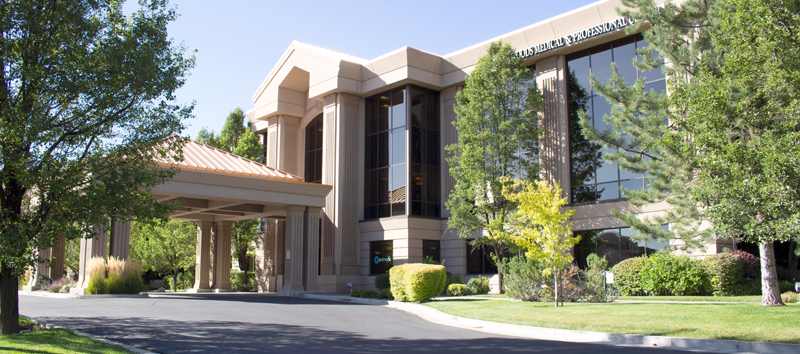
There are a handful of clinics we can recommend based on our knowledge of their treatment programs. If it’s been three months or more and your symptoms haven’t resolved, these treatment centers have the best chance of helping you.
Cognitive FX — The Gold Standard for Post-Concussion Treatment
We put ourselves at the top of this list, and here's why we've earned that position:
The Only Clinic with Third-Party Validated Outcomes
Most concussion clinics can tell you they help patients. We can prove it. Independent, peer-reviewed research published in a scientific journal found that 77% of patients treated at Cognitive FX experienced statistically significant improvement in their post-concussion symptoms. No other post-concussion treatment center in the world has this level of outcome validation.
Proprietary fNCI Brain Imaging Technology
While other clinics rely on symptom questionnaires and basic neurological exams, we use functional NeuroCognitive Imaging (fNCI) to see exactly how your brain is functioning. This isn't a standard MRI. Our technology identifies the specific brain regions affected by your concussion, allowing us to create a treatment plan tailored to your brain, not a generic protocol.
Official Second Opinion Provider for the NFL Players Association
When professional athletes with access to unlimited healthcare resources need answers about their brain health, they come to us.
Intensive, Results-Driven Treatment
Our EPIC Treatment program delivers in one week what traditional clinics spread across months of appointments. Patients receive approximately 50 hours of targeted, multidisciplinary therapy, including:
- Neurocognitive therapy
- Occupational therapy
- Neuromuscular therapy
- Sensorimotor therapy
- Cognitive therapy
- Psychotherapy
- And more
This intensive approach produces an average 60% reduction in symptoms within a single week of treatment.
A True Multidisciplinary Team
Our clinical team includes neuropsychologists, neuroradiologists, neurosurgeons, clinical psychologists, neuromuscular therapists, occupational therapists, cognitive therapists, and MRI technicians, all working together on your case. This isn't a referral network spread across town. It's a coordinated team under one roof.
Over a Decade of Specialization
Since 2014, we have treated over 1,000 patients annually who suffer from persistent post-concussion symptoms. This singular focus has allowed us to refine our protocols continuously and stay at the forefront of concussion research and treatment.
If you’re unable to visit us for treatment, the other five locations named here may be able to help you:
- Cognitive FX
- UCSF Sports Concussion Clinic
- Stanford Brain Performance Center
- UCSD Sports Concussion Clinic
- UBMD Concussion Management Clinic (especially for acute concussion recovery)
- Neural Effects(especially for acute concussion recovery)
- MayoClinic
If you've experienced one or more concussions and your symptoms persist, you're not alone — and you're not imagining it. Help is available. Peer-reviewed research shows that 77% of patients treated at Cognitive FX experienced significant improvement in their post-concussion symptoms. Cognitive FX is the only post-concussion treatment clinic with third-party validated outcomes. To see if you are eligible for treatment, schedule a consultation.
Some Concussion Clinics Organized by State (Evaluate Yourself)
We don’t have the time or the resources to thoroughly vet every concussion clinic — there are thousands in the U.S. alone. But now that we’ve equipped you with the knowledge and know-how, you can evaluate local clinics yourself. Here are a few well-known concussion clinics in each state.
Concussion Clinics in Alabama
Concussion Clinics in Alaska
Concussion Clinics in Arizona
Concussion Clinics in Arkansas
Concussion Clinics in California
Concussion Clinics in Colorado
Concussion Clinics in Connecticut
Concussion Clinics in Delaware
Concussion Clinics in Florida
Concussion Clinics in Georgia
Concussion Clinics in Hawaii
Concussion Clinics in Idaho
Concussion Clinics in Illinois
Concussion Clinics in Indiana
Concussion Clinics in Iowa
Concussion Clinics in Kansas
Concussion Clinics in Kentucky
Concussion Clinics in Louisiana
Concussion Clinics in Maine
Concussion Clinics in Maryland + District of Columbia
Concussion Clinics in Massachusetts
Concussion Clinics in Michigan
Concussion Clinics in Minnesota
Concussion Clinics in Mississippi
Concussion Clinics in Missouri
Concussion Clinics in Montana
Concussion Clinics in Nebraska
Concussion Clinics in Nevada
Concussion Clinics in New Hampshire
Concussion Clinics in New Jersey
Concussion Clinics in New Mexico
Concussion Clinics in New York
Concussion Clinics in North Carolina
Concussion Clinics in North Dakota
Concussion Clinics in Ohio
Concussion Clinics in Oklahoma
Concussion Clinics in Oregon
Concussion Clinics in Pennsylvania
Concussion Clinics in Rhode Island
Concussion Clinics in South Carolina
Concussion Clinics in South Dakota
Concussion Clinics in Tennessee
Concussion Clinics in Texas
Concussion Clinics in Utah
Concussion Clinics in Vermont
Concussion Clinics in Virginia
Concussion Clinics in Washington
Concussion Clinics in West Virginia
Concussion Clinics in Wisconsin
Concussion Clinics in Wyoming
If you’re experiencing symptoms that won’t resolve after one or more concussions, you’re not alone. And you’re not crazy. Using a brain scan called fNCI, we see evidence of how your brain changes with treatment. On average, our patients notice a 60% improvement in symptoms after one week. To see if you are eligible for treatment, sign up for a consultation.








